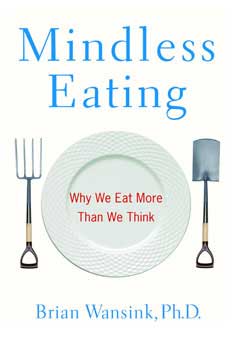In writing the last post on WordPress development, I came across an interesting lesson on food. Here is Matt Mullenweg on the book, Mindless Eating:
“It’s not actually a book about food, it’s a book about people. About the human condition and human behaviors. I love food because it’s intrinsic to the human experience, it brings us all together. What Brian talks about in the book is the mindless margin. Most people who overeat don’t overeat by a lot. They overeat by about a 100 calories/day.
We’re talking about a cookie here, 1/6th of a Snickers bar. 100 calories/day over a year adds up to 10 lbs.
On the other end, less 100 calories a day is below the threshold for what many people notice. Over the course of a year it can cause a 10 lb weight loss.
This is what I thought of when researching WordPress development.”
I have not read the book but the idea is something I practice. In my daily habits I try to extend the time between meals and eat a bit less. If I can say no to even the tiniest amount then I feel like a conqueror, knowing I am losing some weight. It also reminds me I will eat again so no need to overload on this meal.
I think it’s those tiny, daily victories that make a big difference in weight loss. Again, from Mindless Eating, this time from Wikipedia:
The encouraging premise behind Mindless Eating is that the obesigenic environment that people have set up for themselves in their homes and at work can be reversed. Just as this environment has led many people to slowly gain weight, it can be re-engineered to help them mindlessly lose weight. Consuming 200 fewer calories a day would lead a person to weigh approximately 9 kilograms (20 lbs) less in a year than they otherwise would. The first sentence and the last sentence of the book are, “The best diet is the one you don’t know you’re on.”
Instead of deprivation dieting, Mindless Eating recommends a person choose three small changes in their environment that would lead them to eat 200-300 fewer calories a day.
I’ve already mentioned two of my small changes, extending periods between meals and eating a small amount less, and the third would be learning to only eat when I’m hungry. This means skipping the urge to snack in between meals. I think of it like this, “if I’m craving chocolate am I also craving a vegetable? If no, then I should wait until I’m craving the vegetable.” Every time I do so it works. The craving goes away and I eat proper food later when I’m truly hungry.
What about you, do you have any tips for small changes?
***
Mindless Eating: Why We Eat More Than We Think — author on Twitter – @BrianWansink
